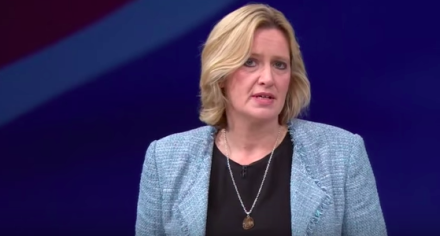
Over the weekend Amber Rudd became another casualty of the Prime Minister’s “hostile environment” policy. Theresa May has been single-mindedly dedicated to reducing overall net migration to the tens of thousands since she took up the post of Home Secretary in 2010. The Home Office’s immigration strategy can be summed up in a few words: getting numbers under one hundred thousand.
This is neither a commitment to unifying separated families or building a better economy, but rather a view that less is more. The thinking behind this is that fewer migrants will boost Tory support among voters. Deporting loved ones or making staff shortages worse are acceptable by-products of an ideological commitment to win votes by stoking public divisions.
Under Theresa May, the Home Office launched a new policy aimed at encouraging citizens to tell the government about their ex-lovers using an online form. This could be used to arrest and deport migrants here unlawfully. It’s as sinister as it is ineffective – and not one person is known to have been arrested or deported as a result. Nor had any impact assessment been done about the likelihood that using the form could lead to abusive relationships. The only purpose was to separate families as soon was possible.
A key aim of the hostile environment was to make life difficult for anyone living in the UK unlawfully. Put another way, everyone is a potential migrant to deport unless they can prove otherwise. The problems facing the Windrush generation were that they did not have the papers proving their right to remain and the Home Office had been busy shredding what evidence it had of their lawful residency. May’s government has turned Kafkaesque from fiction to reality.
The new environment boasted tough new identity checks for anyone doing everyday tasks like opening a new bank account – but it turns out that here again this sinister policy is as ineffective as it is immoral. The Home Office sends lists of who it believes is here unlawfully for banks to check records against. The so-called crackdown does not actually identify anyone new or previously unknown.
Like with any policy, mistakes are made. The issue here is the kinds of mistakes being made against British citizens – all in the name in boosting public confidence in the immigration system – as citizens denied bank accounts, unable to fill vacancies for their businesses and even deported bring a new meaning to omnishambles.
As Home Secretary, Amber Rudd oversaw this situation unfold. That included explicit targets for removing people, which she denied existed last week although a later memo revealed she had supported aims to deport 10 per cent more illegal immigrants. Scrapping the target only drives it underground so long as there is a still an ideological zeal to cut net migration no matter how or at what cost. The only difference is the targets will be off-record.
Removing Rudd from the Home Office was one necessary consequence of recent revelations, but this does nothing to stem the problem. Rudd didn’t launch the hostile environment or commit to net migration targets. This was the work of her predecessor and boss, Theresa May. Shuffling chairs around the cabinet table doesn’t change the culture of the Home Office – especially when the one who created the current crisis is in 10 Downing Street.
If the government is to move forward on immigration, then it needs a new direction towards policies more fair and effective – not only a new Home Secretary. The public must have confidence in our immigration system. But without a change in government, it’s difficult to see how such a direction can happen as any fundamental change may undermine the PM’s credibility at a critical time.
Thom Brooks is Dean of Durham Law School




More from LabourList
‘The cost of living crisis is still Britain’s defining political challenge’
‘Nurses are finally getting the recognition they deserve’
Letters to the Editor – week ending 15th February 2026